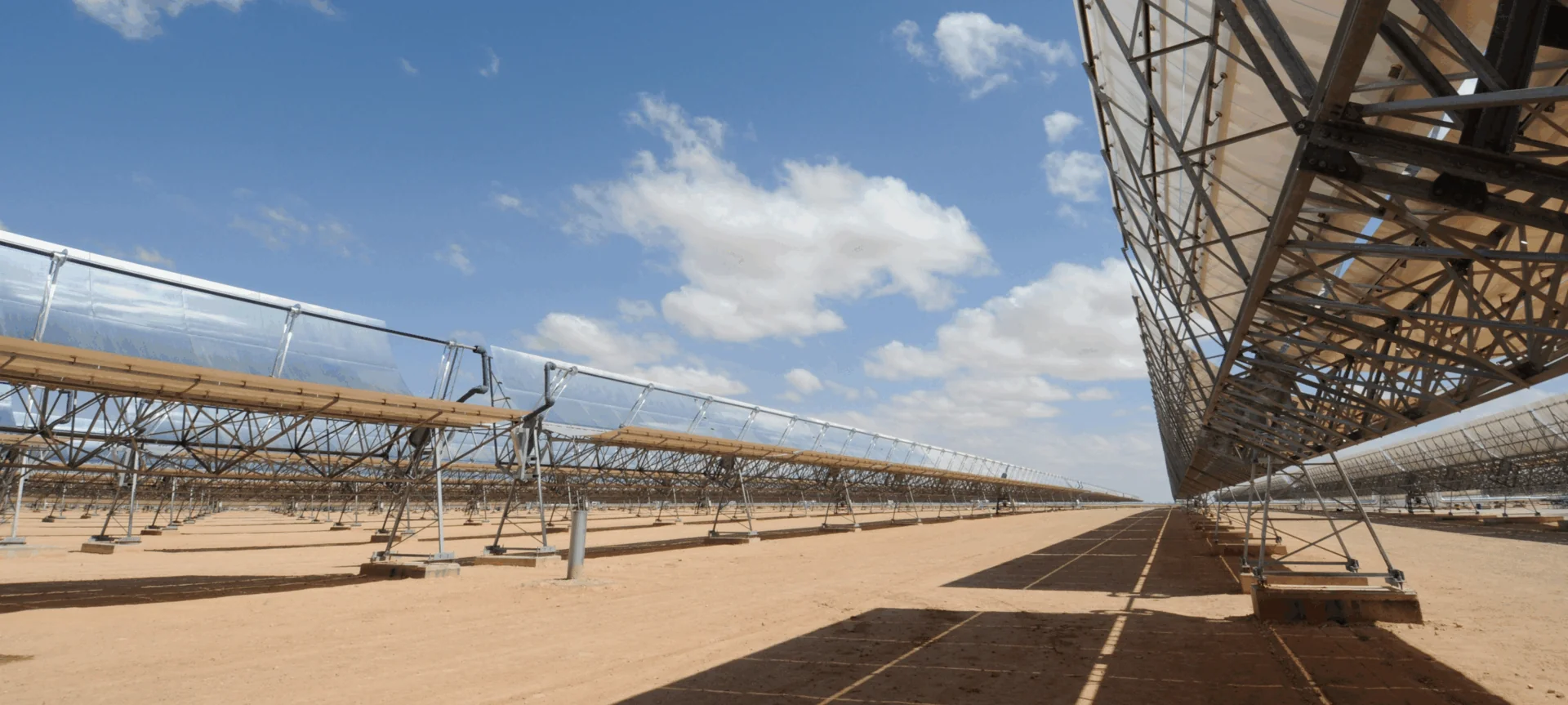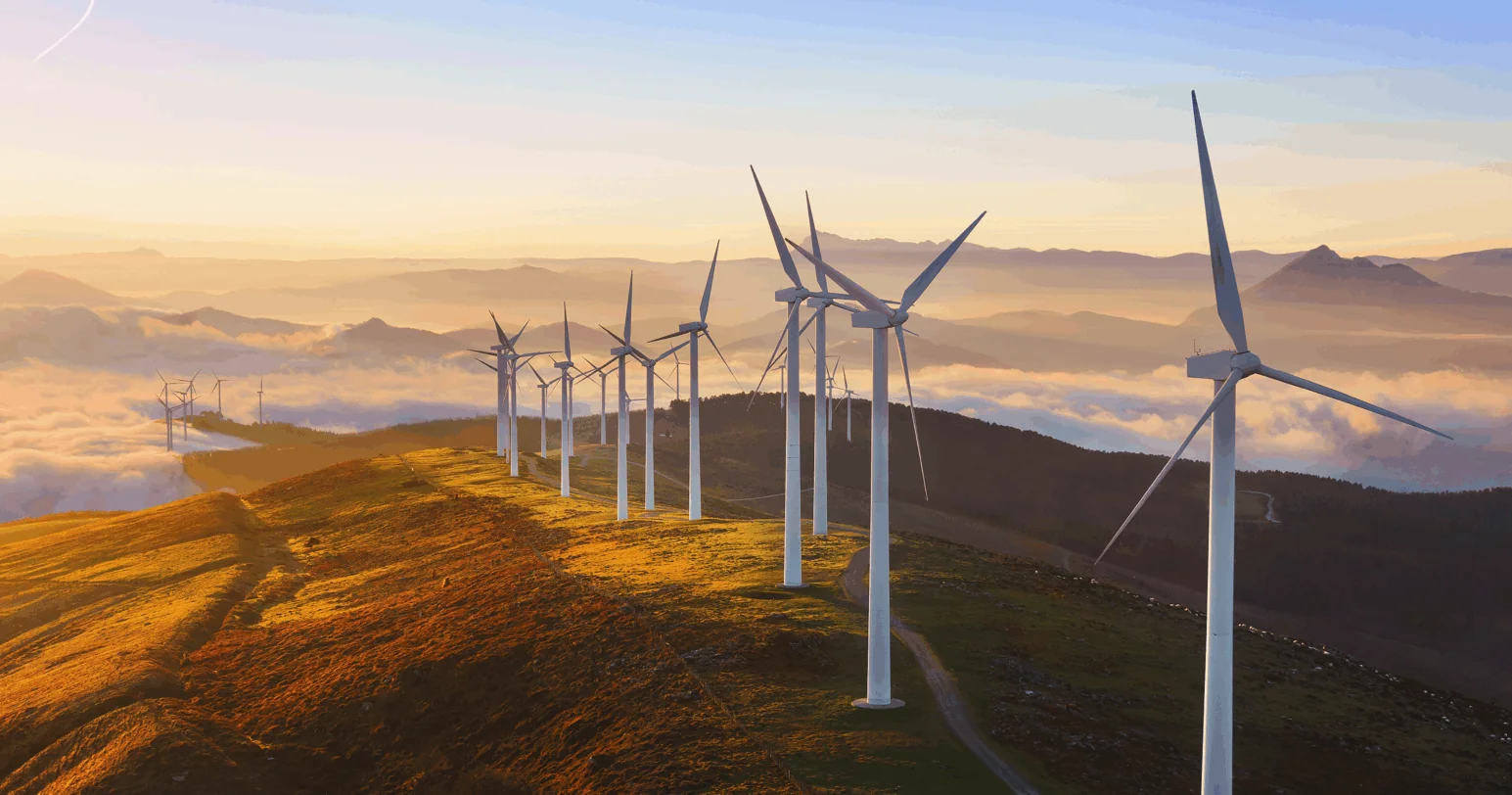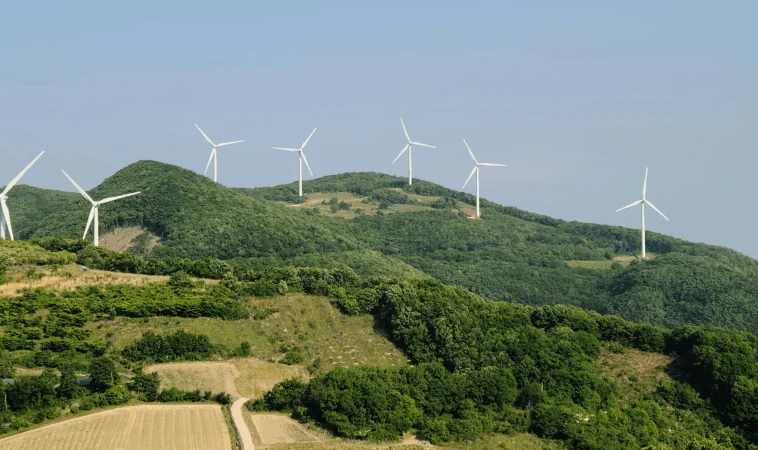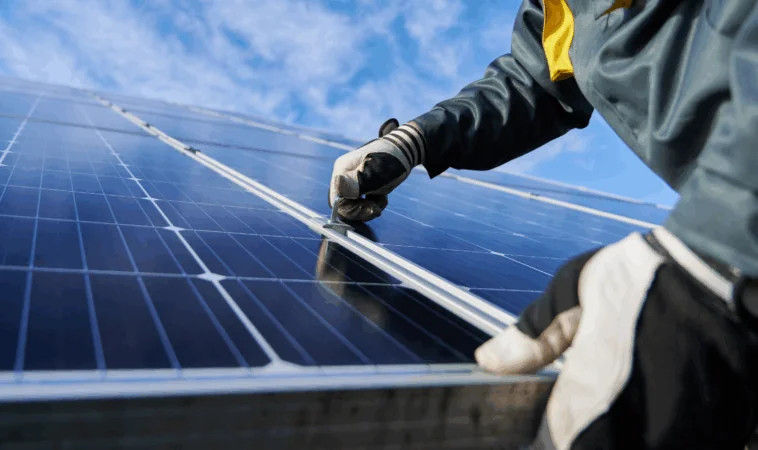
In its updated Nationally Determined Contribution, Morocco has committed to phase out coal power by 2040, ‘subject to adequate international support’ or in the 2040s unconditionally. This is the first time the nation has committed to a coal phase-out date – a key milestone after joining the Powering Past Coal Alliance in 2023. At the same time, the country also has committed to tripling its renewable energy capacity to over 15 GW by 2030, improving grids, and building out energy storage.
Coal power remains the primary source of electricity in Morocco, however the country’s rapidly expanding renewable energy capacity is beginning to change this. As of 2024 coal accounted for 59.3% of Morocco’s electricity mix, down from 70% in 2022. At the same time, wind and solar supplied nearly 25% of the nation’s electricity in 2024, up from 9% in 2015.
This surge in renewables’ deployment has come after a series of firm commitments made by the Moroccan government. The country first set out its ambition to expand renewables up to 52% of the energy mix by 2030 in its National Energy Strategy in 2009, aimed for 70% renewable power by 2050 in its 2021 NDC, and committed to No New Coal at COP26 the same year. Then in 2023, Morocco joined the PPCA, committing to phase out coal power, aiming to set a specific date in the near future.
These commitments have been accompanied by a range of policy measures including tenders and auctions for large solar and wind projects, boosting investor confidence by creating the one-stop agency, Moroccan Agency for Sustainable Development (MASEN), and a Public-Private Partnership (PPP) financing scheme [1].
Leila Benali, Minister of Energy Transition and Sustainable Development, Kingdom of Morocco, said:
The gradual phase out of coal power, combined with the rapid scale-up of renewable energy, will reinforce our energy security and drive clean economic and social growth. The Kingdom of Morocco has stopped planning for new coal power plants. By employing the right technical and financial levers, as presented at COP28, we are convinced that Morocco can achieve this objective and build a value-creating economy that benefits everyone.
Julia Skorupska, Head of Secretariat, Powering Past Coal Alliance, said:
Morocco is on a path from a heavy dependence on costly fossil fuel imports to a future powered by home-produced renewable energy. Setting a coal phase-out date is a crucial step that paves the way for cleaner air, good quality jobs, and cheaper energy. The PPCA stands ready to help Morocco achieve its new phase-out target and extends this support to any developing economy looking to do the same.
Rachid Ennassiri, Co-Founder and Director, the Imal Initiative for Climate and Development
“The inclusion of a conditional 2040 coal phaseout marks a decisive evolution in Morocco’s climate policy through its progressive NDC 3.0. It transforms what was once an implicit direction into a clear strategic target, signalling intent to manage early plant retirements, contractual reforms, and a just transition backed by accessible international climate finance.”
Morocco’s new coal phase-out commitment comes at a time in which significant progress is being made around the world on the transition from coal power to clean energy. Earlier this month it was confirmed that renewables have generated more of the world’s electricity than coal for the first time and, that solar and wind growth exceeded global demand growth in the first half of 2025. In 2024, additions to the global coal fleet fell to the lowest level in over 20 years. Since 2015, when the Paris Agreement was signed, the coal pipeline has decreased by nearly 65%. In OECD countries, coal generation has halved since 2015 and over 60% of coal capacity in the OECD and EU has either retired since 2010 or is on track to retire on a Paris-aligned timeline. Even in coal-dependent emerging economies, with much younger coal fleets and growing energy demand, real progress is being made. In countries such as the Philippines, Indonesia, Chile, South Africa and the Dominican Republic, pioneering programmes are demonstrating the early retirement of coal power plants is possible.
The Powering Past Coal Alliance supports the acceleration of coal phase-outs around the world, including by hosting the Coal Transition Commission (CTC) co-chaired by Indonesia and France. The Commission convenes national policymakers, multilateral development banks, private finance, international organisations, and experts to outline the lessons learnt of delivering transitions to date, identify the key obstacles to acceleration, and surface potential solutions. The lessons learnt, emerging solutions and next steps of the CTC are gathered in “Accelerating Coal-to-Clean Energy Transitions: First Report and Recommendations of the Coal Transition Commission”. At COP30, the Commission will release two reports that offer practical pathways to accelerate coal transition while keeping power affordable and reliable.
Additionally, as part of the COP30 Action Agenda, the PPCA has produced a new Solutions Bank that gathers case studies from around the world that identify solutions to the challenges of coal transitions. At COP30, the PPCA will launch a Plan to Accelerate Coal Transitions which will identify concrete actions to accelerate the coal-to-clean transition in the lead up to the next Global Stocktake in 2028.
ENDS
Notes to the Editors:
[1] For more information on Morocco’s updated NDC see here.For more information, please contact:
Callum Mason, Communications Officer, Powering Past Coal Alliance Secretariat, phone: +44 7825 829592, email: callum.mason@poweringpastcoal.org




